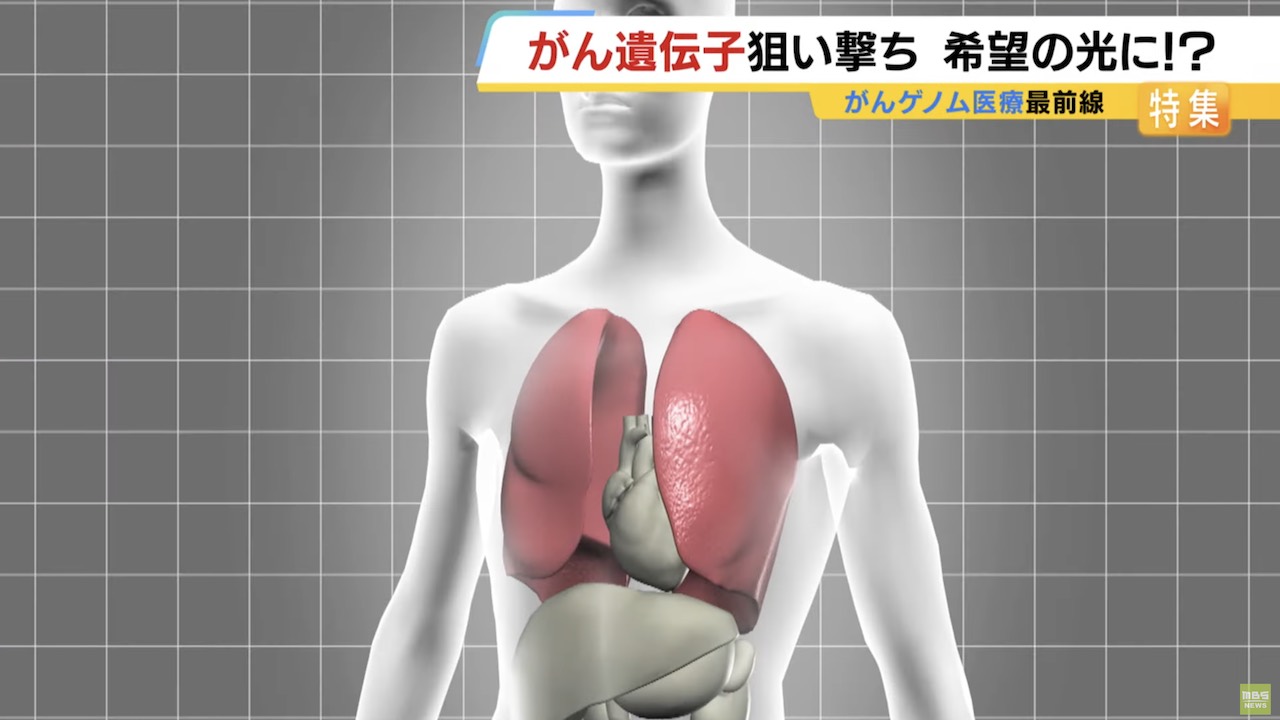TOKYO, Oct 31 (News On Japan) - Diagnosed with lung cancer in his forties and given a prognosis of just six months to live, a man has defied the odds and is still working full-time, eight years after the initial diagnosis. This was made possible by the latest treatment method known as "cancer genome medicine."
Hisa Aoshima, 52, a resident of Yatsu City in Shizuoka Prefecture, has been living without any treatment for his lung cancer, finding enjoyment in his daily life. He first discovered the illness in September 2016 when a shadow was detected on his right lung during a health check.
"I don’t smoke, so why did I get lung cancer?" Aoshima shared, recalling the shock of the diagnosis. Following the discovery of his illness, Aoshima quickly underwent surgery to remove a 3.8 cm tumor, which was larger than expected and had spread to his lymph nodes, indicating advanced disease. A third of his right lung was removed, and he also underwent chemotherapy. However, the cancer later spread to his left lung, leading to a Stage 4 diagnosis. He was then told he had only six months left if the next treatment didn’t work.
"I couldn’t sleep after that," Aoshima admitted. "I worried that if I fell asleep, I might not wake up in the morning, or maybe I’d die in my sleep."
At the time, he was 46 and living with his wife and two children—a son in his second year of high school and a daughter in the sixth grade. He recalls, "I was devastated, thinking I was going to die soon. I often cried in the hospital room, feeling lost."
Determined to find another treatment option, Aoshima joined a support group for lung cancer patients, where members openly discussed their treatments and health conditions. "Listening to their stories made me realize how little I knew about my own illness. All I really knew was that I had lung cancer and had surgery for it," he reflected, prompting him to start learning more about lung cancer.
Through support group meetings and research, Aoshima found hope in "genome medicine," a treatment tailored to each patient’s specific gene mutation. In genome medicine, cancer is treated based on genetic mutations that vary between individuals. If a suitable drug is found for a specific mutation, the treatment can have a significant impact.
One of the most notable advances in lung cancer treatment over the past two decades has been the development of molecularly targeted drugs, which are now available for nearly half of lung cancer patients who undergo genetic testing.
About eight years ago, Aoshima asked his doctor to test him for significant mutations, but none were found. However, through his involvement with the patient community, he learned about other possible mutations. Upon re-testing, a rare mutation in the "ROS1" gene was found, a mutation present in only about 1% of lung cancer cases. Fortunately, a targeted therapy had already been developed for it.
"When they told me, it felt like grabbing onto a lifeline," Aoshima said with emotion. "I cried with a sense of relief, feeling that my life could continue."
Aoshima began treatment with the targeted drug in 2020. Although he experienced high fevers and rashes as side effects, his spirits were lifted by a handmade calendar sent by his family, which he looked at each morning to feel connected with them despite not being able to see them in the hospital.
After a year of treatment, Aoshima’s tumor had shrunk to the point where it was nearly undetectable on CT scans. While he has experienced health issues since, he has returned to full-time work and hasn’t received any treatment for over a year.
Recently, Aoshima visited the hospital with his wife for a semiannual check-up. As they waited for the results, his wife expressed the familiar anxiety of each visit.
"Everything is stable," the doctor assured them. "There’s no sign of progression, and for now, there’s no need to resume treatment."
"I don’t expect the cancer to disappear completely," Aoshima admitted. "But as long as I can live with it, I’ll keep holding out hope for new treatment options."
Source: MBS
















